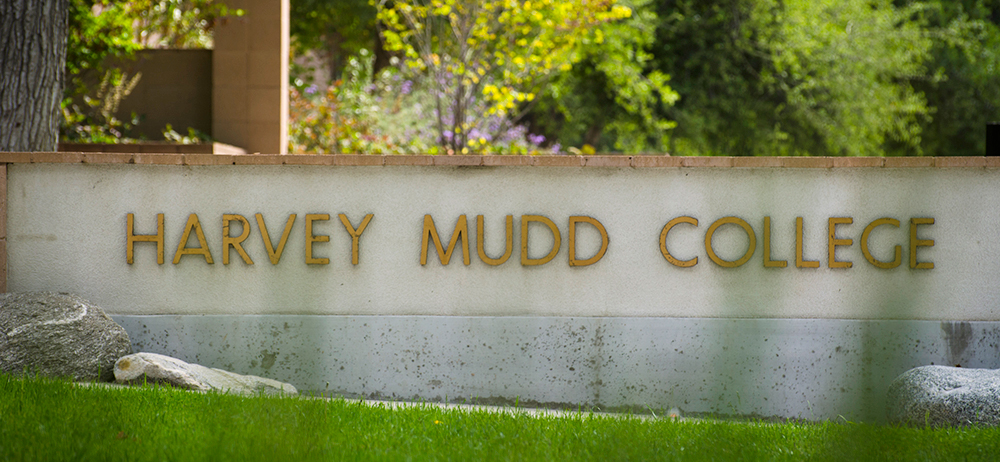$1.1 Million Mellon Grant to Expand Justice Education Programs
August 9, 2018
Harvey Mudd College students with a passion for social justice and community engagement have the opportunity to participate in the Prison Education Program (PEP), teaching STEM subjects at local prisons to educate, empower and transform the lives of incarcerated people.
The success of the program, which won Harvey Mudd’s 2018 Outstanding Student Organization award, bodes well for the College’s participation in a new program, Critical Justice Education (CJE). The Andrew W. Mellon Foundation has awarded Pitzer College a five-year $1.1 million grant to develop CJE, which is integrated across all five Claremont Colleges. The program aims to foster social change through the power of prison education and educate 5C students and locally incarcerated individuals.
Harvey Mudd and the other Claremont Colleges have established partnerships with nearby prisons, juvenile detention facilities and residential rehabilitation centers. CJE program partners include the California Rehabilitation Center (CRC) and the California Institution for Women (CIW), both institutions with which Harvey Mudd students and faculty have collaborated in the past.
One aspect of the CJE program is its Inside-Out courses, taught by Harvey Mudd and other 5C faculty and attended by both 5C “outside” and incarcerated “inside” students inside local prisons. Beginning this fall, approximately 100 Claremont students and an equal number of incarcerated individuals will be able to take Inside-Out classes for academic credit. While the Prison Education Program is separate from the Inside-Out courses, its objectives are consistent, says Gabriela Gamiz, director of community engagement at Harvey Mudd and co-author of the Mellon proposal and CJE program guidelines.
“My experience teaching at Harvey Mudd has always been that the students in my classes learn as much (or more) from each other as they do from me,” says biology and chemistry professor Karl Haushalter, who will teach an Inside-Out class this fall. “I see my primary role in the classroom to be facilitating this exchange of knowledge. With an Inside-Out class, the students bring their varied life experiences to class and have multiple opportunities to learn from each other in small-group discussions and team projects that require diverse perspectives to address challenging social issues.”
Haushalter says the benefits of this program go beyond the academic advantages. “One of the goals for me as an Inside-Out instructor is to chip away at the walls of social difference that divide us. Both inside and outside students will practice what it is like to build and sustain a community of scholars aligned in purpose in spite of barriers that would normally prevent them from even interacting at all. I believe that growing in the ability to build relationships across difference will be one of the most important takeaways from the class for both groups of students.”
Harvey Mudd student and faculty involvement in PEP has been consistent since Maya Martirossyan ’17 established the program as part of a Napier course in community engagement. Last year, under co-presidents Nathan Justin ’19 and Adam Dhillon ’19, Harvey Mudd faculty members participated in a PEP lecture series, providing enrichment lectures to incarcerated students on Friday afternoons. Some of the participants include Werner Zorman, Walter and Leonore Annenberg Chair in Leadership; Erika Dyson, Willard W. Keith Jr. Fellow in the Humanities and Associate Professor of Religious Studies; mathematics professor Darryl Yong; engineering professor Nancy Lape and Christie Spackman, former Hixon-Riggs Early Career Fellow in Science, Technology and Society. Yong will teach an Inside-Out course in 2020, and the CJE initiative will also bring visiting scholars, activists, artists and speakers with expertise in the criminal justice system to the 5Cs.
The Claremont Colleges are working toward creating a new intercollegiate major and/or minor and will assess the potential for developing a new 5C center focused on criminal justice studies by 2023.
“One of the aspects of teaching at Harvey Mudd which I most enjoy is the constant innovation and willingness to try new ideas in pursuit of finding more effective and more inspired ways to live out our mission statement,” Haushalter says. “Piloting this new program in critical justice is another example of how Harvey Mudd is continually striving to keep pushing our curriculum forward.”
Simultaneously, the initiative will broaden opportunities for incarcerated and formerly incarcerated individuals in California, which has the second largest prison population in the U.S.
“Growing in our fulfillment of the College’s mission statement demands that HMC students are aware of the most pressing social issues of the day,” Haushalter says. “With an estimated 2.2 million people living behind bars inside of the United States, mass incarceration is clearly one of the challenges that our country faces. The Critical Justice Education program will provide experiential learning opportunities for Harvey Mudd students to engage and critically examine the criminal justice system. Whether it is taking an Inside-Out class or volunteering through PEP, students will be learning first-hand and hands-on.”
